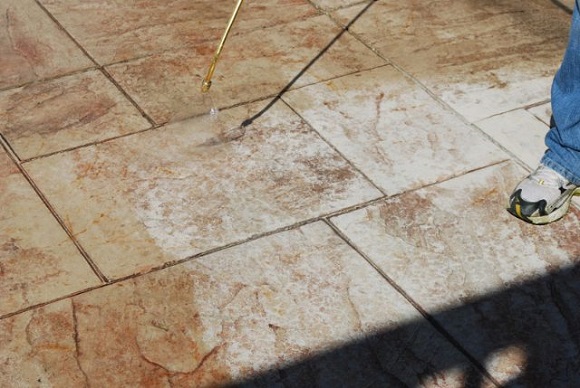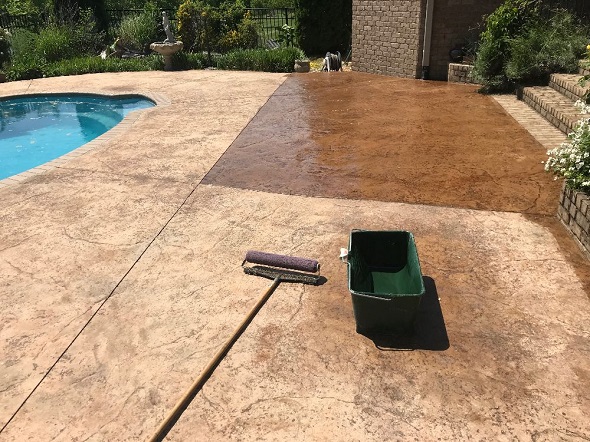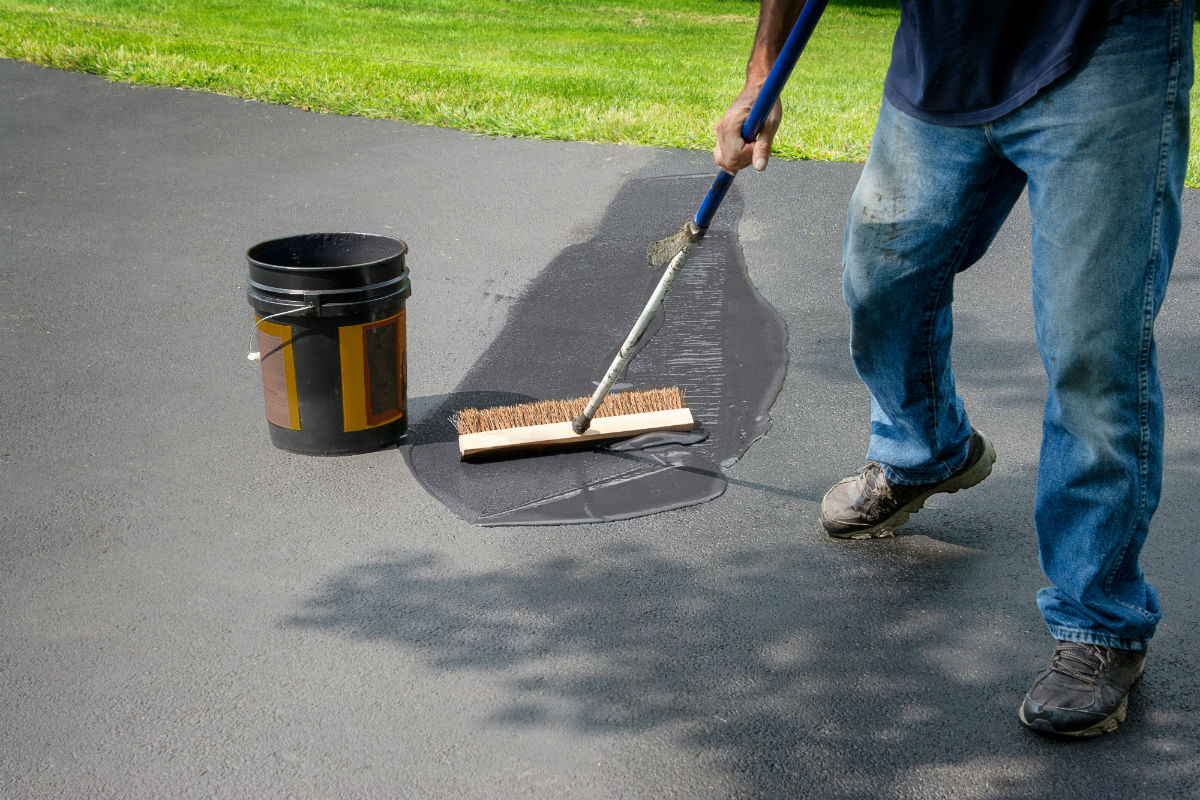With building approvals for new residential developments at record highs, Aussies are snapping up homes in numbers never seen before. There’s still high demand for houses as this resonates with buyers and their goal of attaining the Aussie dream. Turn-key solutions are popular since they include everything from the kitchen sink, to a well-laid shiny concrete driveway. They’ll be no outstanding maintenance costs for years to come, as compared to older homes. Here, most decide to renovate when making changes to interiors or adding extra space for that bigger garage.
Driveways are another area needing regular upkeep. Most will last years, while others soon develop cracks or start fading. This is due as much as to the workmanship when the driveway was first installed, as to the materials and their quality. For detailed guidelines in installing concrete driveways see here. Aussie can pick from a range of materials, but the majority of driveways are concrete. Here too finishes and designs abound. Popular are exposed aggregate, polished, textured, stamped and cut concrete driveways. Freshly-laid concrete with careful details and attention to overall finish will certainly complement the overall look of your home, and give you some street cred in the process. Problems start to appear due to the lack of proper maintenance. One of the best solutions to bring your driveway back to its prime is by using concrete driveway sealers.
Types of Concrete Driveway Sealers
Depending on the finish and look that you’re after and the level of protection you need, there are two basic types of concrete sealers used in driveways. Penetrating sealers are good for driveways with more visible sustained damage, while film-forming sealers provide a protective layer that also looks good. Let’s take a deeper look into each type.
Penetrating Concrete Sealers

If your driveway has been damaged by excess heat, constant use involving heavy vehicles, forming of tree roots, or has been disfigured by heavy downpours, then you’ll want a penetrating sealer. More so if you haven’t maintained it for quite a while. Penetrating sealers penetrate deep into the concrete structure, essentially finding their way into any cracks or fissures that have developed over time. Once the sealant cures, it forms a chemical bond with the concrete, but still remains breathable. This allows any water or heat generated in the soil below to escape upwards, so the driveway retains its rigidity and won’t suffer from staining. The benefit of penetrating sealers is that they bring back the driveway to its initial condition, while not changing the look. It is also the best sealer to go for when you extend the lifetime of the driveway. With a penetrating sealant applied, you won’t be needing to reseal the driveway for years to come.
Different kinds of penetrating sealers are found. Silicates are used for hardening the existing concrete and making it denser. Silanes, Siloxanes and Siliconates are better at repelling water and liquids, so are good in areas with more rainfall. Fluorinated sealers also keep oil and oil stains to a minimum and are a good choice for car dealerships and workshops. Though penetrating sealers won’t enhance the look, certain additives can be used to bring a transparent finish to top surfaces layers.
In terms of uses with different concrete types, silicates are best for polished concrete driveways, silanes for dense concrete and masonry and siloxanes go well with exposed aggregate. Siliconates are good for both smooth and rough concrete surfaces, while fluorinates provide the best protection against liquids and possible staining.
Film-Forming Concrete Driveway Sealers

Film-forming sealers, also known as topical sealers, coat the surface of the concrete. This protective layer protects against moisture and spills, is highly durable are easy to apply. There are three types of film-forming sealers:
• Acrylic sealers
Acrylic sealers come as either water or solvent-based, with water-based sealers easier to apply and containing fewer volatile substances. Water-based acrylic sealers give a matte finish, while solvent sealers have a gloss finish. The thin layer is good against dust, liquid stains, keeps out mould and mildew, and holds its ground against UV rays, corrosive chloride and salt. Ideal for warmer coastal areas.
• Epoxy Sealers
Epoxy concrete driveway sealers provide for more durable surface finishes than acrylic, due to the thicker viscosity. They build on the benefits of acrylic sealers in that they provide for better impact and abrasion resistance, so are suitable for concrete with high pedestrian or vehicle frequency. Epoxy sealers have a gloss finish, and can be coloured to suit decorated concrete driveways. Additives are usually added to increase slip resistance and when you’re after a matte look to the concrete.
• Polyurethane Sealers
These are the eco-friendly choice among concrete sealers, and contain the highest amount of organic compounds. The film coating in these sealers protects the concrete from high heat, chemicals, liquids and abrasion. They can be optioned in varying sheen, and in different colours so are good for coloured, stamped and exposed-aggregate driveways.
Film-forming sealers are a good way to enhance the look of the driveway. Acrylic sealers last up to three years, whereas thicker epoxy and polyurethane sealers are more durable and will last the best part of five years or more.
